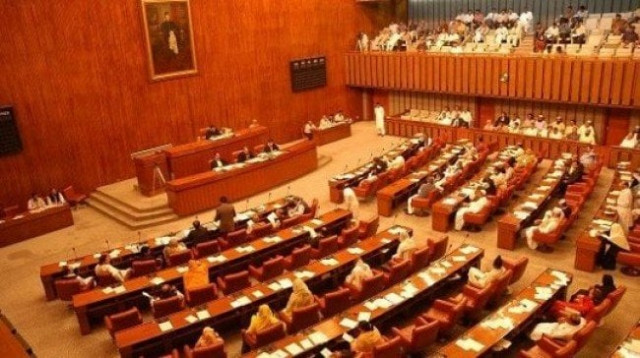Pakistan’s constitutional evolution reflects balance, struggle between democracy, military, institutions
In the 52 years since its adoption, Pakistan’s Constitution has undergone 26 amendments, reflecting shifts across both democratic and military regimes that reshaped 270 of its articles.
According to official records, military rulers and civilian governments alike introduced wide-ranging changes to the 1973 Constitution. During martial law periods, military leaders made extensive modifications. General Ziaul Haq altered the suspended Constitution 97 times, while General Pervez Musharraf made 37 changes.
Former prime minister Zulfikar Ali Bhutto introduced seven constitutional amendments between 1973 and 1977, the first of which, passed in 1974, modified 17 articles. These changes included the integration of federally administered and affiliated territories, and mandated citizens to disclose sources of political party funding.
Read: 27th Amendment — What we know so far
The second amendment declared Ahmadis (Qadiani and Lahori groups) non-Muslims, while the third increased preventive detention limits for those accused of anti-state activities.
Subsequent amendments under Bhutto addressed judicial tenures, provincial representation, and the procedure for a prime minister to seek a vote of confidence through a referendum.
Following Bhutto’s tenure, General Ziaul Haq introduced three major amendments between 1985 and 1987, revising 27 constitutional clauses and granting constitutional protection to presidential orders and martial law regulations.
Read more: Cabinet delays meeting on 27th Amendment draft
After the end of military rule, Benazir Bhutto’s government passed the 11th Amendment in 1989, extending the parliamentary term from three to four years.
Later, the 12th Amendment in 1991 established special and appellate courts, while Former prime minister Nawaz Sharif’s second term saw four amendments, including the 13th, which restored prime ministerial powers curtailed under the 8th Amendment.
The 18th Amendment, passed during the Pakistan Peoples Party’s tenure, remains the most extensive constitutional reform, amending 102 clauses to reverse military-era changes, enhance provincial autonomy, and curtail presidential powers to dissolve Parliament. It also redefined procedures for appointing the Chief Election Commissioner and service chiefs.
Later amendments further refined judicial appointments, empowered the Election Commission, and introduced military courts to expedite trials of terrorism-related offences through the 21st Amendment.
Also read: Govt finalises initial 27th Amendment draft for cabinet review tomorrow
In 2024, Parliament passed the 26th Amendment, introducing significant judicial reforms, including the formation of constitutional benches, the establishment of the Judicial Council and Commission, transfer mechanisms for High Court judges, and tenure limits for the chief justice of Pakistan.
Over five decades, Pakistan’s constitutional evolution continues to reflect the balance and struggle between democracy, military influence, and institutional reform.

